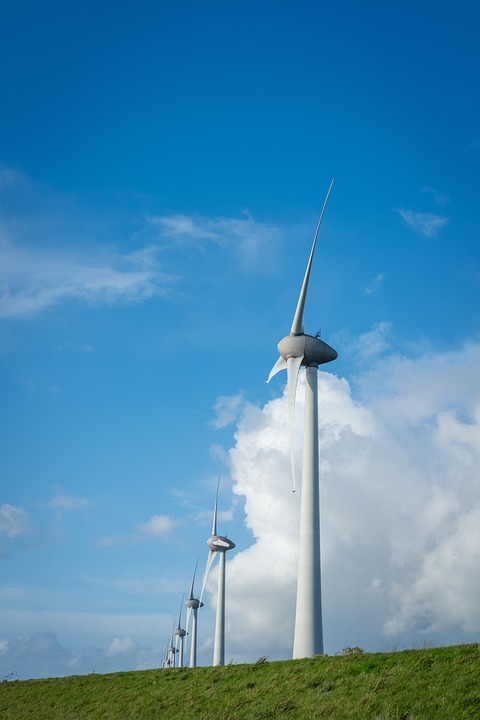Energy Efficiency Standards: A Key to Reducing Carbon Emissions
As the world grapples with the pressing issue of climate change, the role of energy efficiency standards has become increasingly crucial. With the global energy consumption on the rise, it is imperative for us to reduce our carbon footprint and switch to cleaner, more sustainable sources of energy. In this article, we will delve into the world of energy efficiency standards, exploring their significance, benefits, and the impact they can have on reducing carbon emissions.
###
The Importance of Energy Efficiency Standards
Energy efficiency standards refer to the minimum level of efficiency required for various appliances and products, such as light bulbs, refrigerators, and air conditioners, to ensure that they meet certain standards of energy consumption. These standards are usually set by governments, regulatory bodies, or organizations to ensure that consumers have access to products that meet minimum energy efficiency requirements.
Benefits of Energy Efficiency Standards
There are several benefits of energy efficiency standards, including:
- Reduced Energy Consumption
- Lower Carbon Emissions
- Cost Savings for Consumers
- Increased Availability of Efficient Products
By adopting energy-efficient appliances and products, consumers can reduce their energy consumption, which in turn leads to lower carbon emissions. This can be achieved through a combination of strategies, including:
* Using more efficient lighting, such as LED bulbs
* Implementing energy-efficient appliances, like refrigerators and air conditioners
* Using energy-efficient home insulation to reduce heat loss and gain
###
The Importance of Compliance with Energy Efficiency Standards
Compliance with energy efficiency standards is crucial for several reasons:
Consequences of Non-Compliance
Failure to comply with energy efficiency standards can have several consequences, including:
- Fines and Penalties
- Loss of Market Share
- Bad Publicity and Reputation Damage
On the other hand, compliance with energy efficiency standards can lead to benefits such as:
* Reduced energy costs
* Improved brand reputation
* Increased market share
### There are several ways to reduce carbon emissions through energy efficiency standards, including: Implementing energy-efficient appliances is one of the most effective ways to reduce carbon emissions. This can be achieved through the use of appliances with high energy efficiency ratings, such as: * LED bulbs } Building design and construction play a crucial role in reducing carbon emissions. This can be achieved through: * Building orientation and design Smart grids and energy management systems can also play a significant role in reducing carbon emissions. This can be achieved through: * Smart meters and real-time energy monitoring ### In conclusion, energy efficiency standards are a key to reducing carbon emissions. By adopting energy-efficient appliances, buildings, and infrastructure, we can significantly reduce our carbon footprint and contribute to a more sustainable future. It is essential for governments, regulatory bodies, and organizations to work together to implement and enforce energy efficiency standards, ensuring that consumers have access to products that meet minimum energy efficiency requirements. By doing so, we can create a more sustainable and environmentally friendly future for generations to come. A: The benefits of energy efficiency standards include reduced energy consumption, lower carbon emissions, cost savings for consumers, and increased availability of efficient products. A: The consequences of non-compliance with energy efficiency standards include fines and penalties, loss of market share, and bad publicity and reputation damage. A: You can reduce your carbon footprint through energy efficiency standards by implementing energy-efficient appliances, using smart grids and energy management systems, and designing and building sustainable infrastructure. A: Businesses can benefit from energy efficiency standards by reducing energy costs, improving brand reputation, and increasing market share. A: The future of energy efficiency standards is likely to be shaped by the increasing adoption of smart technologies, advancements in energy storage, and the growing demand for sustainable infrastructure.1. Implementing Energy-Efficient Appliances
* Energy-efficient refrigerators and air conditioners
* Smart home appliances2. Building Design and Construction
* Use of insulation and energy-efficient windows
* Proper ventilation and air conditioning3. Smart Grids and Energy Management
* Energy storage and backup systems
* Load management and demand responseConclusion
FAQs
Q: What are the benefits of energy efficiency standards?
Q: What are the consequences of non-compliance with energy efficiency standards?
Q: How can I reduce my carbon footprint through energy efficiency standards?
Q: How can businesses benefit from energy efficiency standards?
Q: What is the future of energy efficiency standards?


_2.png?w=150&resize=150,150&ssl=1)
_1.png?w=150&resize=150,150&ssl=1)

_1.png?w=150&resize=150,150&ssl=1)
_1.png?w=150&resize=150,150&ssl=1)
